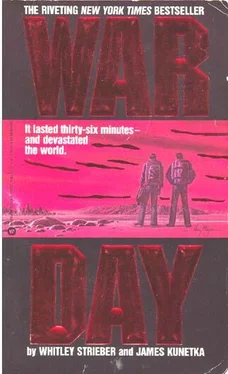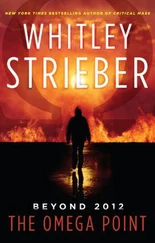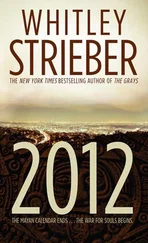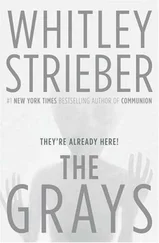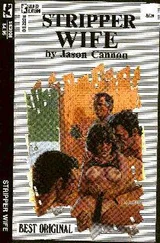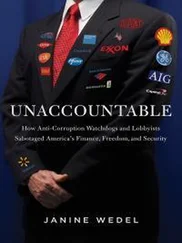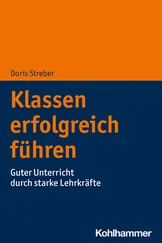Whitley Strieber and James W. Kunetka
WARDAY
and the Journey Onward
This book is respectfully dedicated to
October 27, 1988,
the last full day of the old world.

October 28, 1988. Warday.
It lasted only thirty-six minutes and when it was over, much of the earth remained untouched.
But in those thirty-six minutes, a world had been destroyed.
•
Seven million Americans died in the immediate blast. Millions more would die of radiation, famine, and disease during the next five years. Millions also lived, strung out across a country that knew it had been hit—but not why. Or where. Or how.
•
In the days and months that followed, an America blacked out by the breakdown of its communications systems and wrestling with the demands of an unprecedented emergency struggled first for survival.
Later it would seek answers—seek to find out how it had happened, who had survived, what was left.
•
Five years after Warday, the answers have yet to be found. America is still a strange place, filled with haunting relics of the past, constant reminders of what was lost. But survival is no longer in question. It is time to take stock.
And so, five years after the missiles detonated, two survivors set forth on a trek across America. Determined to find out what has happened to the rest of the country, theirs will be a journey of discovery filled with pain and hope.
From Texas to California, across the vast distances of the Great Plains, into the once-bold centers of commerce and power along the eastern coast, and through the small cities and rural hamlets of the South—amid pockets of resurgence and remnants of destruction, they will hear America speaking: remembering the past, willing the present, longing for a future.
Warday: It takes you into a world you couldn’t imagine.
A work of fiction that reads like fact, Warday is the result of a skillful blending of the talents of Whitley Strieber (author of The Wolfen and The Hunger ) and James W. Kunetka (author of City of Fire: Los Alamos and the Atomic Age, 1943–1945 and Oppenheimer: The Years of Risk ). Texans by birth, best friends since childhood, and well-versed in the scientific and technological data underpinning the novel, they unite in one voice to depict an America in the aftermath of nuclear war. Though Warday is set in 1993, nothing in it is beyond the possible, technologically or politically. This is what gives the novel its terrifying truth.
However and wherever we are
We must live as if one never dies.
—Nazim Hikmet, “On Living”
WHITLEY
A Survivor’s Tale
The survivor’s tale is the essential document of our time. All of us have them; even babies have them. To be born now is no guarantee that you will not be touched by Warday. Indeed, birth makes it certain.
So we are all survivors, and those of us who actually lived through that day carry our histories with us, our stories of how we did it, of what particular luck or strength or cleverness saw us through.
We are not the people we were on that sharp October day in 1988. I see the change in my wife and son, certainly in my collaborator, Jim Kunetka. And in all whom I know. Sitting here with my pad and paper, I find that writing about it evokes obscure and powerful feelings. Am I bitter, or angry, or simply sad? So much of what I saw as basic to life is gone; what I counted valuable, worthless.
I have my own particular artifacts of that time, mostly small things and mostly relating to the security of my former life. I have been marked by the economic disaster as much as, or more than, by the radiation. In the final analysis, for so many of us, the closed bank and the worthless money are truer expressions of Warday than is some distant mushroom cloud. My last stock statement from Shearson/American Express, for example, is probably my most treasured talisman of the past. It reminds me of the fragility of complex things. Somehow, age has given it beauty. I can imagine that such a thing, covered with symbols and symbolic numbers, associated with a mythical time of plenty, could one day become an object of worship.
I open the document, smooth it out. My feelings about it are so strong that they are almost silly. I have sat staring for hours at the anachronistic names: Raytheon, General Foods, American Motors, Dow Chemical. I got eighteen gold dollars in the distribution of ’90. How ironic that nine hundred paper dollars will now buy a house. In 1987 you could spend more on a suit.
More even than to this paper, though, I cling to the memories of my family. These five years later I still find myself waiting for the phone to ring, expecting my younger brother, Richard, to be on the other end of the line. Richard, the determined, tiny rival, the childhood enemy who became as an adult my best friend, who understood me and whom I understood. Whom I loved. We talked every afternoon, no matter where we were in the world. So now, each day at four, I remember. That is my monument to him.
New York was my home in the eighties, and I was there on Warday. We remained there through the dangerous twilight that followed. In fact, the only reason I am alive now is that we stayed as long as we did.
I saw New York in her gaudy evening, and I saw her dead, and so—a little bit—I comprehend. My difficulty is with my childhood home, San Antonio. How a whole place, all of its people, all the details of its life, could just disappear is beyond my understanding.
Nobody would have put San Antonio on a list of prime targets—nobody except the Russians.
They thought not of the quiet streets or of the fun we had, but of the repair and refitting facilities at Kelly Air Force Base and of the burn center at Brooke General Hospital, and of the massive concentration of spare parts and equipment in the area. But they did not think of kids running through sprinklers, or of the River Walk or the genteel silence of the McNay Art Institute, or of the enormous, vital, striving Chicano population.
My family had a history in San Antonio. I was deeply connected to the place; in so many ways, my identity flowed from it. Though I lived in New York, I kept a membership in the San Antonio Writers’ Guild. When I was there I used to walk by the river for hours, and then eat Mexican food at Casa Rio. At age ten, I would sit in my father’s office in the Alamo National Bank Building and look out over the flat, smiling land and dream boy’s dreams, of having wings, or of riding shotgun on the stagecoach to Dallas.
How can it be that the place where I was formed is gone? The Alamo National Bank Building was a tremendous skyscraper, or so I remember it. Did it fall over at the end, crashing into Commerce Street, or did it simply disintegrate?
My brother had just opened his own law office there, on the eighteenth floor. Did he feel anything? Say anything? I visualize him on the phone, hearing a noise, glancing up, then gone. Or was it horrible and slow? Death by fire in an elevator? Or by suffocation in some sub-basement parking garage?
And my mother. Looking back to the placid life we knew, it seems so impossible that her fate was to be killed in a war. She was seventy-one years old, and for her the end was almost certainly instantaneous. She lived in an apartment house two stories high, of rather light construction. She was either there or at a neighbor’s house at the moment of death. Whichever was the case, there wouldn’t have been the least protection.
Читать дальше
